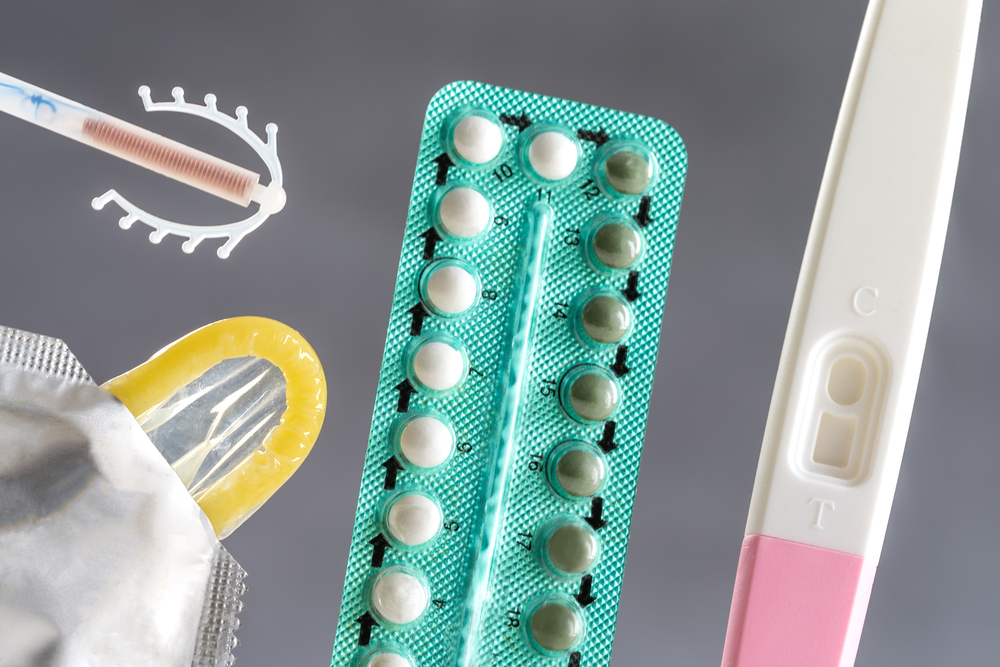For women who want to enjoy their sexuality to the fullest and yet don’t want to be saddled with consequences like unwanted pregnancy, using contraceptives is a must. When you’re still young and you have your life ahead of you, an unplanned pregnancy can be a lot of burden to bear.
It’s a good thing that women now have several choices when it comes to contraception. Not so long ago, the only choice available was birth control pills, and not everyone could use them due to certain contraindications and side effects. If you want to know about the various birth control methods for women, read on.
What Contraceptives are Available for Women?
At present, women have many choices with regard to which type of contraceptive they would like to use. However, there is no one best method for contraception. That’s because each type of contraceptive has its own pros and cons.
And in choosing a contraceptive, women have to consider their own health condition, the need to protect themselves from getting a sexually transmitted infection, as well as whether they would like to have children in the future. Here are some of the most commonly used contraceptives for women.
Hormonal Implant
This is best for women who prefer not to get pregnant for the next three years after insertion. Hormonal implants are considered very effective in preventing pregnancy, and yet, it’s also easy to remove.
So, if you are already planning to get pregnant, you can just have the implant removed by your doctor. Unfortunately, hormonal implants don’t protect you from sexually transmitted infections.
And it takes a minor surgery in order for the implant to be inserted or removed. Nevertheless, a lot of women prefer hormonal implants because they’re very convenient and effective. After it’s inserted, you won’t have to worry about proper usage or dosage.
Intra-Uterine Device (IUD)

Many women prefer using an IUD because it’s easy to use, comfortable, and you can remove it anytime you want without needing to go through a surgical procedure. Plus, you don’t really need to check every day whether your IUD is still in place.
On the one hand, just like hormonal implants, IUDs are effective against unplanned pregnancy but not against STDs. Moreover, you need a health care provider to help you insert it. And you do need to be careful that the device doesn’t fall out or get out of position.
Birth Control Pills
Although not as highly effective as hormonal implants or IUDs, birth control pills work great as long as they’re used properly. In addition, women who have irregular periods benefit a lot from birth control pills since this type of contraceptive can actually help make your menstrual period become more regular.
Some women don’t like using birth control pills because you have to remember to take the pill every day. Moreover, when you’re taking certain medications like antibiotics or if you have a medical condition, your doctor may advise against using birth control pills.
Hormonal Injections
For those who don’t like the inconvenience of having to take pills every day, hormonal injections are a better option. The effects last for three months, plus they can give you added protection against cancer of the uterus.
Unfortunately, you do need to visit your health care provider every 3 months, and depending on your insurance, you may need to co-pay for the expenses. A lot of women also suffer from irregular menstrual spotting after getting a hormonal injection for the first time.
Hormone Patch

Also considered highly effective in preventing pregnancy, hormone patches offer the added benefits of making your menstrual period lighter and more regular. In addition, it can also help protect you against uterine and ovarian cancer, as well as help prevent pelvic inflammatory disease.
However, you’ll need a prescription in order to get a hormone patch, and this type of contraceptive is not recommended for women who suffer from uncontrolled high blood pressure, diabetes, liver disease, breast cancer, and other medical conditions. A hormone patch cannot protect you from STDs so you will still need to use condoms.
Vaginal Hormonal Ring
This type of contraceptive is effective in preventing pregnancy. It can also help you to have a more regular menstrual period, and it can reduce acne and menstrual cramps. It can also help protect you against certain cancers although it can’t protect you against sexually transmitted diseases.
A prescription is needed in order to get a vaginal hormonal ring, and doctors won’t prescribe this type of contraceptive to women with medical conditions like high blood pressure. Vaginal hormonal rings may increase your chances of developing a blood clot.
Cervical Cap
Although they are not as effective as hormonal implants or injections, cervical caps also have some advantages over other female birth control methods. For instance, you can leave it in place for up to 48 hours, and you can insert it hours before sex.
However, there are many disadvantages associated with cervical caps. It can be quite expensive, and you’ll need your health care provider to give you a prescription and to fit the cap inside you. In addition, you’ll need to leave the cap on for several hours after sex.
Female Condoms
If you want to be protected against both pregnancy and sexually transmitted diseases, you can opt to use a female condom. What’s nice about this type of barrier contraceptive is that you don’t need a special fitting or a prescription to get it. Plus, it’s immediately effective, and you can insert it several hours before having sex.
Unfortunately, some women find female condoms uncomfortable to use. Plus, there’s a risk that the condom may move during sex, or that the condom’s outer ring gets pushed inside the vagina.
Tubal Ligation
If you want to prevent pregnancy once and for all, a tubal ligation will certainly be effective. You won’t have to worry about having to go back to the doctor or getting a prescription.
You do need to undergo a minor surgery in order to have it done. But once you’re finished with it, that’s it. The surgery may be costly, but it’s a one-time expense only. Unfortunately, even though it’s great for preventing pregnancy, it won’t protect you against STDs.







